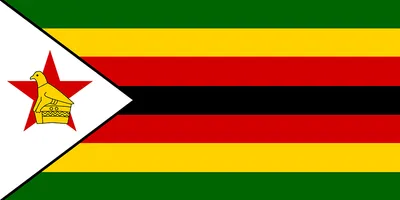In 1980, Zimbabwe emerged from the shadows of colonialism to claim its place among the community of independent nations. The journey to independence was arduous, marked by decades of resistance, sacrifice, and resilience against colonial oppression.
The roots of Zimbabwe’s struggle for independence can be traced back to the late 19th century when British colonial forces first set foot in the region then known as Southern Rhodesia. Under British rule, the indigenous population endured discrimination, dispossession of land, and political marginalization. However, the seeds of resistance were sown early, with movements like the African National Congress (not to be confused with the South African ANC) advocating for equal rights and self-determination.
The struggle gained momentum in the mid-20th century with the formation of nationalist parties such as the Zimbabwe African National Union (ZANU) and the Zimbabwe African People’s Union (ZAPU), led by charismatic figures like Robert Mugabe and Joshua Nkomo. These leaders galvanized support among the masses and waged a relentless campaign against colonial rule.
The road to independence was fraught with challenges, including brutal crackdowns by the colonial authorities, internal divisions within the liberation movements, and geopolitical complexities. The Lancaster House Agreement of 1979, brokered by the international community, paved the way for a peaceful transition to majority rule. This historic agreement outlined the terms for free and fair elections, the protection of minority rights, and the establishment of a democratic government.
On April 18, 1980, Zimbabweans went to the polls in an atmosphere of hope and anticipation. The elections were a resounding success, with ZANU securing a landslide victory. Robert Mugabe, hailed as a hero of the liberation struggle, assumed office as the country’s first prime minister. His inauguration marked the dawn of a new era for Zimbabwe, promising equality, prosperity, and reconciliation.
The journey towards true independence, however, proved to be fraught with challenges. The legacy of colonialism cast a long shadow over the fledgling nation, as deep-seated inequalities and economic disparities persisted. Mugabe’s government faced criticism for its human rights abuses, political repression, and mismanagement of resources.
Despite these setbacks, the spirit of independence continued to inspire Zimbabweans to strive for a better future. The country’s rich cultural heritage, diverse ethnic tapestry, and spirit of resilience served as pillars of strength during times of adversity.
Today, as we reflect on Zimbabwe’s journey towards independence, we celebrate the courage and determination of its people in the face of adversity. The struggle for freedom and dignity is a testament to the indomitable human spirit and the power of collective action. As Zimbabwe charts its course in the 21st century, may the lessons of the past guide its path towards a future of peace, prosperity, and unity.
newshub



Recent Comments